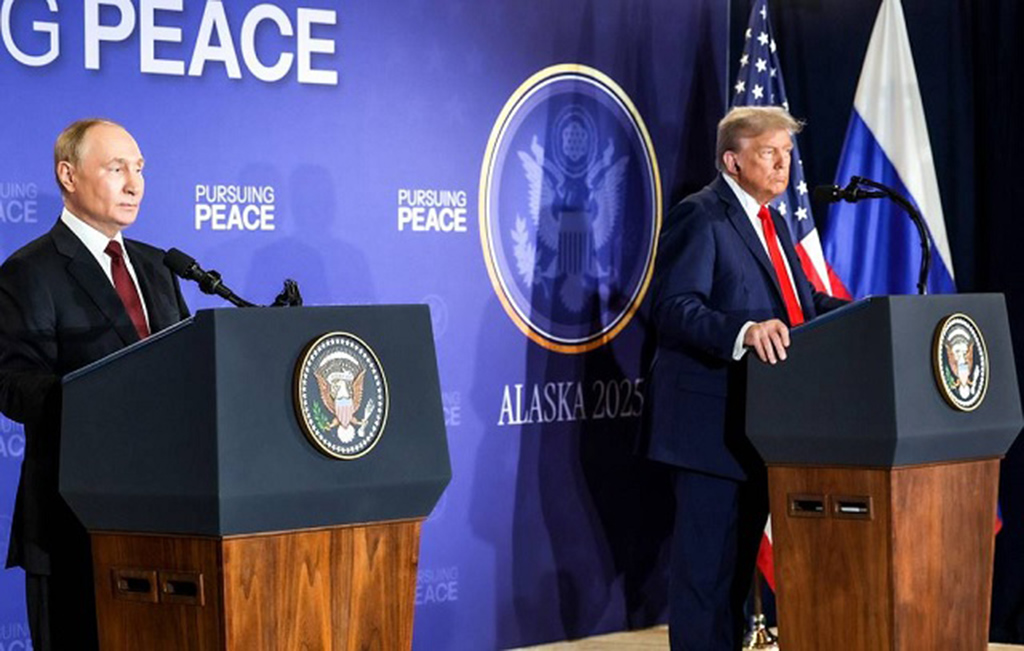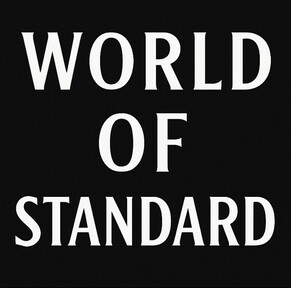Is this the beginning of a new balance of power on the global stage? And how does it reflect on relations in Bosnia and Herzegovina?
16.08.2025By Ratko Kalajdžić and Jevto Kalajdžić, AK Stevanović
Anchorage, Alaska, August 16, 2025 – The recent meeting between Russian President Vladimir Putin and U.S. President Donald Trump in Alaska attracted enormous attention from the global public. Held in the midst of the war in Ukraine, the summit raised questions about a possible new balance of power in the global arena and the role of traditional actors such as the European Union. At the same time, in Bosnia and Herzegovina—a country whose stability is often determined by geopolitical developments—political actors are carefully weighing how such tectonic shifts could influence internal relations and the future of the state. Below, we analyze the key messages from the summit, their global implications, and the echoes and possible consequences for BiH.
Messages from the summit: The war in Ukraine in focus
Presidents Vladimir Putin and Donald Trump shook hands on the runway of a military base in Anchorage, Alaska, ahead of three-hour negotiations dedicated to ending the war in Ukraine.
The meeting, held on American soil at the Anchorage military base, marked Putin’s first trip to a Western country since the invasion of Ukraine began. The central topic was the war in Ukraine. After three hours of closed-door talks, the two leaders held a short press conference without questions from journalists.
Putin described the summit as “constructive talks in an atmosphere of mutual respect,” thanking Trump for taking the initiative to meet specifically in Alaska. He underlined the symbolism of the location—reminding that Russia and America, although separated by an ocean, are “neighbors” with ties dating back to Russian Alaska. He reiterated Moscow’s well-known positions, stressing Russia’s “legitimate security concerns” and the historic unity with Ukraine, which he called a “brotherly nation” and part of the Russian world. Still, a note of conciliation was noted—Putin, for the first time publicly, said that “the security of Ukraine” also matters in addition to Russia’s security concerns. He said Russia and the U.S. were ready to work on ensuring Ukraine’s safety and expressed hope that the agreement reached could pave the way to peace—if “Kyiv and European capitals understand it constructively and do not throw sticks into the wheels.” He even proposed that the next meeting be held in Moscow, demonstratively opening the door to continued dialogue.
Trump struck a more optimistic tone but admitted that no ceasefire deal had been reached. He emphasized that talks were productive and that “progress was made,” though without a final agreement. “There will be no ceasefire agreement until we reach the real one,” Trump stated, suggesting that a temporary truce would be meaningless without a broader peace deal. He revealed that he and Putin agreed on several important issues, including the controversial idea of territorial exchange as part of a possible solution. They also agreed that Ukrainian President Volodymyr Zelensky should join the next round of negotiations, opening the way for a trilateral summit. Trump announced he would immediately inform Zelensky and NATO leaders about the talks: “Now it’s really up to President Zelensky to finish this,” he said, signaling that Washington would not formalize any deal without Kyiv’s consent.
The start of a new global balance of power?
The Anchorage summit was immediately met with diverging interpretations: Is it a breakthrough toward peace and a “reset” in U.S.-Russia relations—or does it simply expose the changing balance of power globally while leaving the war unresolved?
Ukraine and Eastern European allies expressed disappointment and skepticism. The Kyiv Independent called the meeting “disgusting, shameful, and ultimately useless,” criticizing Trump for failing to deliver on his threats of “serious consequences” for Russia. They argued Putin gained legitimacy and acceptance without making concessions. Similar reactions came from NATO’s eastern flank: Lithuania’s defense minister accused Putin of “manipulation and veiled threats,” while Czech foreign minister Jan Lipavský doubted Putin’s sincerity for peace, noting that Russian missiles continued to bombard Ukraine even during the summit.
Meanwhile, Moscow celebrated the summit as a victory. Kremlin spokesman Dmitry Peskov praised it as “very positive” and “without preconditions.” Former President Dmitry Medvedev cynically remarked that talks can continue while war goes on, showing Russia has no reason to halt its “special military operation.” Russian elites framed it as a masterstroke: Putin gave nothing, got everything. Trump abandoned his earlier insistence on an immediate ceasefire and accepted Putin’s preference for a comprehensive peace agreement before halting combat. Even sanctions relief was floated—Trump announced the postponement of secondary sanctions on countries buying Russian energy, which Moscow took as a sign of Western weakness.
This fuels the impression of a potential new balance of power. Trump’s return to the White House marked a pivot from Biden’s hardline pro-Ukraine stance to direct bargaining with Moscow. Europeans fear marginalization. Analysts warn this could split the West’s unity. Commentators recall the dangers of “appeasement”—appeasing aggressors at the expense of smaller states. Many believe Putin “outplayed” Trump in Alaska: returning from isolation without giving anything in return.
Reflections on BiH: Diverging responses in Republika Srpska and the Federation
Geopolitical tremors rarely bypass the Balkans—and Bosnia is no exception. The Putin–Trump dynamic already reverberates internally, particularly through the lens of Republika Srpska (RS) vs. Federation politics.
In RS, where leadership leans toward Moscow, the summit was quietly welcomed. RS president Milorad Dodik, known for his ties to the Kremlin, openly celebrated Trump’s return and suggested RS could even feature in global talks. He claimed RS lobbying was already underway in Moscow, Washington, and Beijing. His rhetoric framed RS as more relevant internationally than BiH itself, continuing his long-standing efforts to portray the entity as an independent actor.
Yet, Washington—both under Democrats and Republicans—has consistently supported BiH’s sovereignty and territorial integrity. U.S. sanctions on Dodik remain in place, even tightened. While Dodik sees Trump as an ally, there is little sign the new U.S. administration would support RS’s separatist ambitions. Still, the renewed strength of Moscow may embolden hardliners in RS.
In the Federation, reactions are cautious but worried. While official statements back “every effort for peace,” Sarajevo is watching closely. With BiH as an EU candidate, officials align with Brussels’ stance: support for Ukraine’s sovereignty and rejection of territorial changes by force. Behind the scenes, leaders fear any settlement rewarding Russian aggression could set a dangerous precedent for the Balkans. If Russia emerges from Ukraine with gains, it might embolden separatist ambitions in BiH.
International actors in BiH are also wary. Russia has long sought to weaken OHR and EUFOR presence. If Moscow’s global leverage grows, it may intensify efforts to undermine Western oversight in BiH. Still, the U.S. and EU reaffirm their commitment to BiH’s integrity. But if EU–U.S. unity erodes, BiH risks becoming more vulnerable.
Broader geopolitical implications for BiH
The Anchorage meeting highlighted both opportunities and risks. The opportunity: serious peace talks involving the U.S. could move the Ukraine war toward resolution. The risk: such peace may come at the cost of redrawn geopolitical spheres of influence. Trump’s preference for bilateral deals with Moscow over multilateral cooperation alarms Europe. If the EU loses influence, smaller states like BiH could suffer.
For BiH, the key takeaway is the need for internal unity and proactive engagement with international partners. Lessons from Ukraine show that a divided and unstable BiH is more vulnerable to becoming a pawn in great-power games. While Russia seeks influence via Dodik, the U.S. still has a vested interest in preventing new conflicts in Europe. The EU, despite potential internal challenges, remains BiH’s most important partner through integration and financial support.
In conclusion, the Alaska summit was historic—signaling a shift in course, though not a final destination. The Ukraine war is far from over, but new doors to negotiation have opened. Putin reemerged from isolation without losing ground, while Trump showcased a new approach that unsettles European allies. For Bosnia and Herzegovina, the message is clear: safeguard stability, pursue EU reforms, and resist centrifugal forces exploiting global shifts. The emerging balance of power will test the resilience of small states. BiH cannot afford passivity—it must assert its position and focus on economic growth, not perpetual nationalism. Preserving identity is guaranteed by Dayton, but survival and progress hinge on economic development. As great powers realign, small states risk being trampled; for BiH, the best defense is unity, reform, and a forward-looking economic agenda.
/ / /
"Standard Prva" LLC Bijeljina is a company registered in Bijeljina at the District Commercial Court in Bijeljina. Company’s activities are accountancy, repurchases of receivables, angel investing and other related services. Distressed debt is a part of the Group within which the company repurchases the receivables, which function and are not returned regularly.
Lawyer’s Office Stevanović is the leading lawyer’s office in the region with the seat in Bijeljina. The LO abbreviation represents Lawyer’s Office of Vesna Stevanović and Lawyer’s Office of Miloš Stevanović.
Contact for media press@advokati-stevanovic.com or via telephone 00 387 55 230 000 or 00387 55 22 4444.




